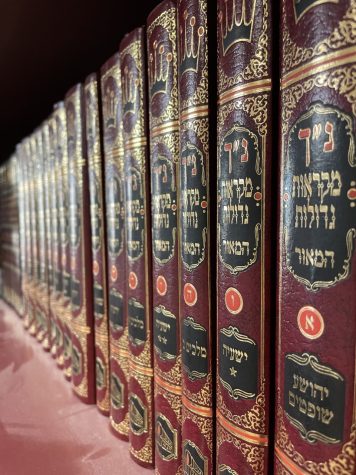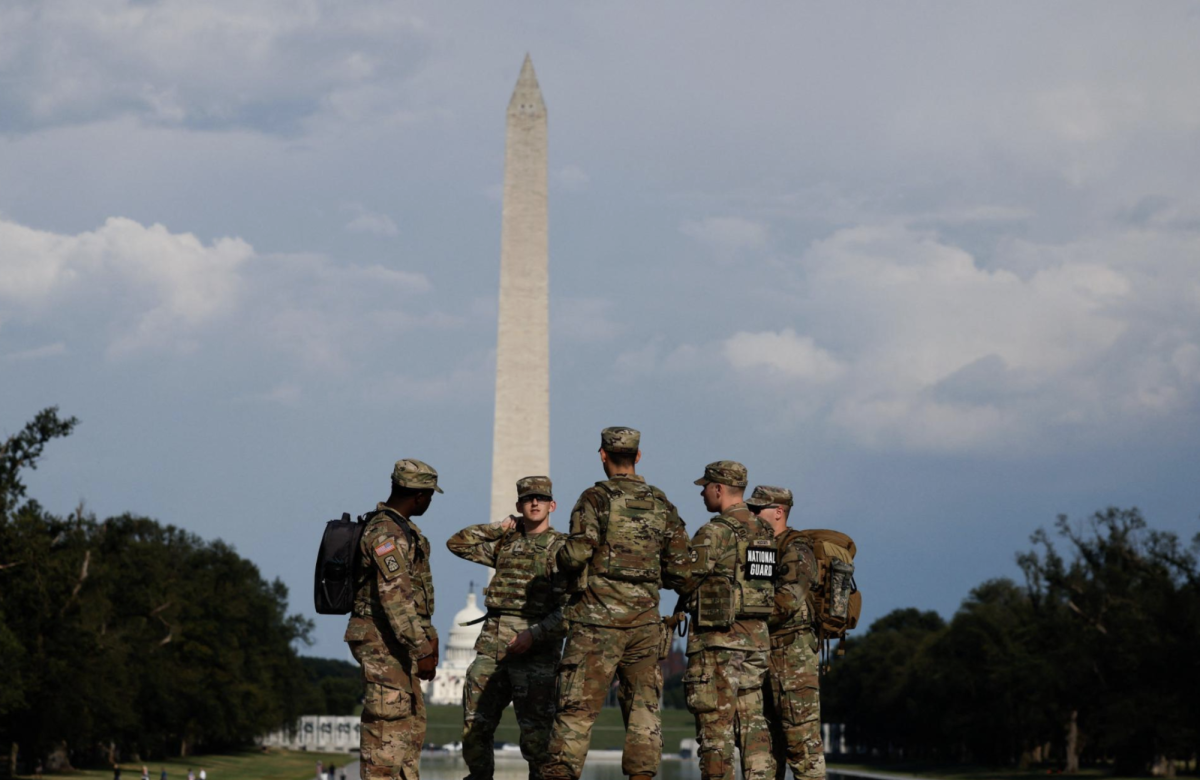
On August 2, the state of Kansas voted to uphold Roe v. Wade (1973). For many, this was considered a win for the support of Kansans’ religious and bodily rights. For others, it was considered a law that enables murder.
Flora Shemtob, a National Conference of Synagogue Youth (NCSY) advisor, and Rabbi David Glickman of Beth Shalom assisted in gathering information about abortion from Jewish sources for this article.
In Judaism, there is a range of perspectives on abortion, but the predominant opinion held advocates the upholding of Roe. As with all decisions involving Jewish law, the rabbis turn to the Torah and Talmud for answers.
Shemtob refers to a Mishnah from Oholot 7:6. Here Rabbi Yehuda Shurpin explains what happens if a woman is having trouble giving birth. The solution is to cut up the child from within her and bring it out limb by limb. Less graphically (and in times of modern medicine), this means that one may prioritize saving the mother’s life: At this point in the pregnancy, “her life comes before his.”
The Mishnah is not advocating that this is the exact procedure that should be done; rather it is stating that if a fetus is threatening the life of its mother, it is permitted to save the mother’s life.
However, this case would apply only if the child’s head had not yet emerged. If it had, then the child is considered to be fully alive and one life is not valued over another.
Shemtob then refers to the concept of a “rodef (literally “pursuer),” which is likely the source of this law in Oholot. A rodef, Rabbi Shurpin of Chabad.org explains, is someone who pursues the life of another. It is permitted to kill a rodef to save the life of the pursued; some even say that killing a rodef is obligatory. The unborn child would essentially be a rodef if a pregnancy is causing the mother to face death.
Shemtob refers to another example from the Mishnah. Mishnah Arachin 1:4 discusses a woman who was sentenced to death by the court. Here, My Jewish Learning says that according to Jewish law, someone who is sentenced to death must be executed within the next 24 hours. If during these 24 hours, it is discovered she is pregnant, her execution is not delayed. The exception to this is if the woman goes into labor during these 24 hours. In this case, her death is postponed, for the sake of the fetus, until she has given birth.
The reason her execution is not delayed for the sake of the fetus (except in cases where she has gone into labor) is because the fetus is not yet considered completely alive, so the maternal interest overrides that of the fetus (persons sentenced to death are executed quickly for psychological concern).
This case appears to argue that while the fetus is yet unborn, it is considered a part of the woman since its life is not taken into account regarding her execution.
Using a source sheet created by Rabbi Glickman, we see another case taken from the Torah that seems to bear a similar theme: The fetus appears to be considered as part of the woman and not an autonomous person. My Jewish Learning explains that in Exodus 21:22, a case is brought in which men are fighting, and in the course of the fight, a pregnant woman gets pushed and this causes a miscarriage. The man whose fault this was would have to pay a fine for damages. This miscarriage is not treated as unintentional murder (in which case the punishment would differ). This seems to argue that the loss of the fetus is not exactly considered the loss of a life.
Yet, there are other cases that argue the opposite. Elsewhere on Glickman’s source sheet, we find that in Genesis 9:6 it says, “Whoever sheds the blood of man, by man shall his blood be shed…” In Sanhedrin 57b, the rabbis comment on this verse. They explain that through an alternate understanding of the Hebrew, it can be understood as whoever sheds the blood of a person in a person, his blood shall be shed. This would refer to a fetus, which is inside of a person. This would imply that the killing of a fetus is considered the killing of a person.
These are far from all the considerations taken into account when determining the Jewish perspective on abortion, and many additional sources exist. Although opinions range far and wide on this topic, one thing generally agreed upon in the Jewish community is that a ban on abortions in all cases are is not in accord with Jewish law.
Shemtob explains that according to some authorities, an abortion would even be required in some instances to save the life a the mother. If abortions were prohibited, this could pose a significant problem according to those who believe that sometimes an abortion is a mandatory, life-saving medical procedure.
The right to an abortion is again on the ballot in Kansas on Nov. 8, 2022 when six out of the seven judges on the Kansas Supreme Court will face a retention vote. Due to the recent constitutional amendment vote on abortion this past summer in Kansas, these six justices will have a significantly increased chance of being removed by conservatives unhappy with their rulings on the matter.
If conservative justices are appointed in their place, the current law enabling abortion access in Kansas could be overturned, and the religious and bodily rights of women would once again be in jeopardy, something which could pose a concern for Jewish communities everywhere, both secular and religious.
Rabbi Glickman says, “I think that what it means to have the free exercise of religion without governmental intervention is for Americans to be able to make medical ethical decisions with the consultation of their religious leaders, whether that’s a rabbi, whether that’s a priest, whether that’s a minister, whether that’s an imam.”
He explains, Judaism set aside, it does not make sense for America, a country that allegedly separates Church and State, to prohibit abortions and other such things in all cases.
Although Judaism’s perspective on abortion varies, it is clear that the abolition of Roe is an attack on Jewish rights and the rights of all people, religious or not.
This story originally appeared in RampageWired on November 3, 2022.











